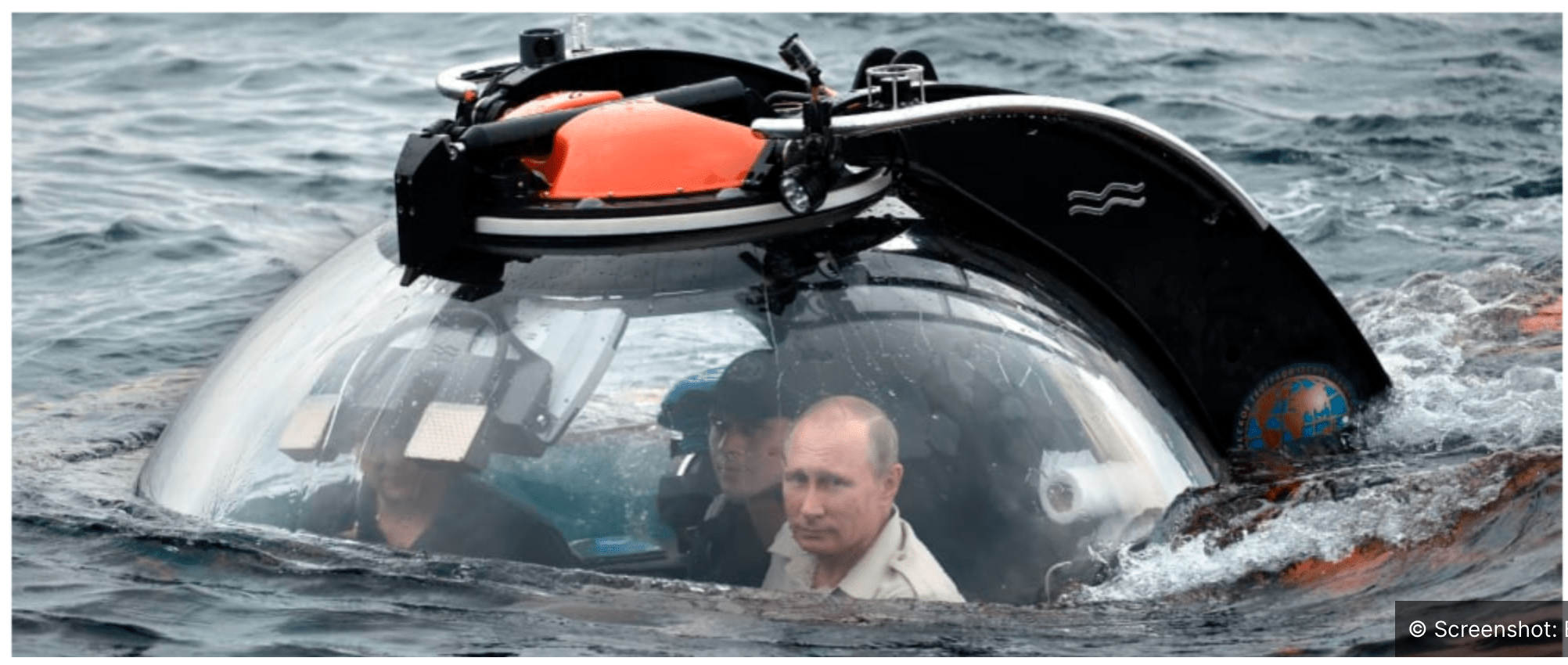
by Rainer Rupp
Since the early 1980s, successive administrations in Washington have been resolutely opposed to any European – especially German – projects to obtain cheap and reliable energy in the form of oil and gas from Russia, instead of buying the energy sources for expensive money by sea from U.S.-controlled sources in the Middle East or directly from the United States to U.S. corporations. The U.S. governments were never only concerned with money, but also with the dependencies thus created, in order to control in this way the vital energy flows of the European NATO vassal states and to exert pressure on the allies if necessary.
In contrast, European energy imports from the Soviet Union and later from Russia created new dependencies but at the same time freed up space vis-à-vis the United States. But the main reason for turning to Russia was that a good part of Germany’s prosperity was built on the import of cheap Russian energy, because it contributed to the superior competitiveness of German industry. Thanks to the anti-industry policies of the Green Party and the subsequent disastrous anti-Russia policies of the German government, this golden age for Germany is now finally over.
The bloody Maidan overthrow of the democratically elected government in Ukraine in 2014, prepared and paid for by the USA, was a milestone on this path, which is currently leading Germany and Europe irrevocably to ruin. The only ones to profit from this are the U.S. elites and their henchmen in the European executive suites. On this point, internationally renowned economist Michael Hudson, a professor at the University of Missouri-Kansas City, had already written a keynote article in early February of this year titled: “America’s real adversaries are its European and other allies.”
As an accompaniment to the Maidan coup, Condoleezza Rice, who served as U.S. Secretary of State under George W. Bush from 2005 to 2009, was allowed to promote a “gas and oil war against Putin” on German TV station N-24 back in May 2014. Here are some excerpts from the video.
“I think the Europeans themselves are part of the problem (that the Russians in Ukraine pose for the West). They (the Europeans) are very dependent on Russia’s energy resources and business relations. But if Putin is not stopped now, then we can get to a real conflict with Russia. Germany is probably the most influential country in Europe, at least economically. There was criticism that Angela Merkel was not aggressive enough (against Putin). (…) What we need now are tougher sanctions. And I’m afraid that should include oil and gas. The Russian economy is vulnerable. 80 percent of Russian exports are oil, gas and minerals. People say Europe will run out of energy supplies. But Russia will run out of money before Europe runs out of energy.”
“I am aware that this route makes it more difficult to do business. But this is one of the few tools we have. In the long run, the global energy dependency ratios should be changed. There could be more reliance on North America’s energy reserves, on the enormous oil and gas reserves we find in North America, including pipelines that don’t go through Russia. We’ve been trying for years to get Europe interested in other pipeline routes. The time for that has come. It’s actually about acting now, and acting as quickly as possible.”
Basically, Condoleezza Rice, who served as National Security Advisor before she was U.S. Secretary of State under President Bush from 2001 to 2005, laid out here the blueprint for subsequent developments in Ukraine and in European-Russian relations, based on her deep insight into U.S. foreign policy.
And where the Europeans, especially the Germans, did not want to go along, the Americans were obviously ready to force their vassals to their “happiness” in the fairway of the U.S. leading power. They do this without coordination with the Europeans. This is evidenced, for example, by the fact that the U.S.-sponsored and paid-for Maidan violence coup in Kiev culminated at the very moment when the German and French foreign ministers and other top EU politicians had agreed with the Ukrainian and Russian leadership on a peaceful, diplomatic solution to the crisis in Ukraine.
What Washington thinks of its vassals in Europe is better illustrated by nothing than the response of Ms. Victoria Nuland, who at the time held the third highest office in the U.S. State Department. When asked by the U.S. ambassador in Kiev whether there had been any consultation with the Europeans regarding the new prime minister of Ukraine appointed by Ms. Nuland, the arrogant governor of the Washington empire responded with the phrase that has since become world famous: “Fuck the EU!”
Thus, in its role as leader of the “rules-based world order,” Washington has always confronted its vassals with faits accomplis. With the Maidan coup, for example, it created facts that the German government could only accept if it did not want to go on a momentous confrontation course with the USA. A real confrontation with the U.S. would be domestic suicide for any German government – regardless of its color composition – and would not even be enforceable because of the powerful counterforces.
These opposing forces are concentrated above all in the financial sector, by far the strongest and most important economic sector. On the one hand, it is dependent on the U.S. financial sector, and good political relations with the U.S. are vital for its survival. On the other hand, the financial sector is closely intertwined with representatives from politics, the media and society, right up to the highest levels (see Scholz). This industry knows how to assert its interests, even if the people perish in the process.
The blowing up of Nord Stream 1 and 2 looks like yet another act of sabotage by the Americans. They are once again presenting the German government with a fait accompli. This has torn down further diplomatic bridges to Moscow and destroyed negotiating motives for a peaceful solution in Ukraine. Because this stops the discussion among the population about opening the pipelines for the unforeseeable future.
As we have officially learned in the meantime from Russian experts, the pipelines can be repaired, but this will take between six months and a year in the best case. So the Germans can kiss goodbye any hope of getting out of the cold winter with the help of Russian gas, at least for this year. In this way, popular pressure on the German government to seek a diplomatic solution with Russia will inevitably be reduced, which may have been another motive for the act of sabotage.
As a new feat of cynicism, the narrative that “Putin” blew up the two Russian pipelines is currently being spread unanimously in Germany and NATO countries. This shows once again how deluded the sick psycho-warriors of the US-NATO elites think we all are.
Nevertheless, this insanity is meanwhile diligently spread in our “quality media” and – admittedly – believed by a part of the already brainwashed population. As the crime scenes of the underwater explosion are supposed to be investigated by exclusively Western experts at some point, one can already quite safely assume that the evidence for the Russian perpetration will be found then: for example, a passport of a Russian secret service agent intact by the water right next to a destroyed pipeline pipe.
Such a thing has worked excellently before: Also on September 11, the barely damaged passport of alleged al-Qaeda terrorist Satam al-Suqami was found in the still-smoking rubble of the World Trade Center towers. And those who did not believe this story were not infrequently punished with a professional ban as conspiracy theorists.
First published by RT German on 29 Sep. 2022

Antworten